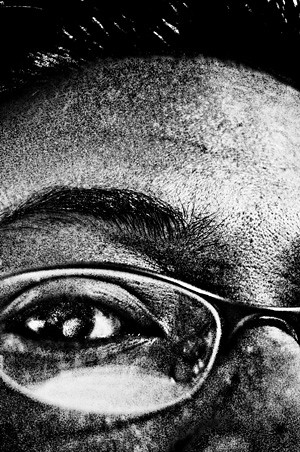
Irreversible
Directed by: Gaspar Noe
Written by: Gaspar Noe
Copyright: 2000
Released by Studio Canal
Cast: Vincent Cassel, Monica Bellucci, Albert Dupontel
I have been familiar with Irreversible (2000) since it created a stir when it was experimentally shown at the Cannes Film Festival four years ago. The audience walk-out at the start of the movie practically carved its notoriety to a degree that it wasn’t publicly released to theatres worldwide. Admittedly I was only after Monica Bellucci and the rumored violent rape scene that spanned (or so I heard) ten to fifteen minutes. Anyway, my boss lent me the DVD and tried to watch it over the evening. Even so, it somehow convinced me of the fact it is, indeed a movie not for the weak tummy. I could only sympathize with the people who were thoroughly assured of their stance when they decided to leave their seats, thus as a result achieved the type of reaction Gaspar Noe presumably anticipated.
Interestingly shallow but craftily post-produced, Noe’s austere camera work leaves the audience on a tightrope towards achieving perfect equilibrium and creating a straightforward plotflow. Irreversible is essentially a simple film: Marcus (Vincent Cassel) on the hunt for his girlfriend Alexandra’s (Monica Bellucci) rapist. He enlists the help of Alexs’s ex-husband Pierre (Albert Dupontel) on his search. From that premise, Gaspar Noe leaves the audience to weave the entirety of the story and in doing so add a cornucopia of creative (however extremely erratic) camera shots.
Technically, Irreversible is a film editor’s nightmare. Of course, we can all agree on such description. Noe’s idea of a reverse sequence is not entirely new to filmmaking. Christopher Nolan’s Memento (1999) as well as the modified reverse sequencing of Quentin Tarantino in Pulp Fiction (1995) introduced the audience to such diverse technique. Always there is a downside or a lowdown to the incorporation of this trend. It obliterates the conventionality of straightforward narration (which is the basic and simplest form of film viewing we all grew accustomed to), and most significantly it adds a weight of confusion to the development of the movie’s plot. Unlike in Memento where the story (the backward amnesia syndrome or something like that) somehow justifies the use of such method, Noe probably decided to incorporate this basically out of pretention-and perhaps to conceal the plot’s superficiality. With that, sealed the fate of the film. Tarantino in part, experimented with such style but as opposite to the audience’s reception of Irreversible, partially succeeded.
Irreversible opens with a twisting (or revolving, whatever) shot of the opening credits, followed by two naked septuagenarians absorbed in profound philosophical talk. Whatever Noe is trying to say with this sequence is completely irrelevant to the film (to my perspective, I guess). Abruptly, it cuts to a scene wherein Marcus is being escorted out from a bar in a stretcher. From hereon, the film traverses through an erratic weaving of dizzying shots. Complementing this, I believe is a stream of impromptu dialogue as if Noe made the film without any script (except, of course, the treatment) to guide him.
I watched Irreversible anticipating whether it could drive me to the same empathies the people at Cannes felt that pushed them to leave the theatre. It didn’t, but somehow led to me cringe at the very sight of Monica Bellucci being violated at the middle of the film (and it confirmed the fact that the rape scene indeed dragged ten minutes). Seriously, the film is a study of extreme violence, of Noe’s intrinsic perversions, and ultimately the appropriate channel of his fantasies.
The eroticism most people expect of Irreversible is naturally absent, except of course, to those people who finds rape to be gratifying, but I think this is presumably an understatement to Gaspar Noe’s reason to write a screenplay that discussed such debauchery. Unlike Paul Verhoeven, whose sexual preoccupations (and perhaps, his fondness for rape scenes evidently illustrated in his films Keetje Tippel, Spetters, Showgirls [1993] and recently Hollow Man [2000]) somehow demonstrated this with a fragment of arty sheen, although much resulted either in critical bashing of the film, or a triumph in erotic depiction.
Irreversible’s theme is not entirely new to the genre. Rape-revenge films trace back to most seventies B-movie gory-fests that include notable titles like I Spit on Your Grave (1971), The Last House on the Left (1975); and carried through the 80s and the 90s with the French soft-porn Baise Moi (1999). While Irreversible turns out a little tame than the aforementioned movies, it does not fail to escape the idea of sex as both an instrument of perversity and commonplace violence. Wholly, the film revolves on the fantasy side of social delinquency-the event of rape in a public subway clearly defines the laxity of the French police system while at the same time questions the reality of such an attack: who would dare attempt to assault a person in a well-lit public walkway without being noticed by a passer-by? At any point, a person with the right mind would somehow avoid passing through a deserted subway even if circumstances dictate (I could attest to this statement though).
There is little that Gaspar Noe has to prove from this film, likewise it `typed’ him as a director who harbors a penchance for unnecessary violence and the downright disturbing. In the two films he directed (I Stand Alone [1998], and Irreversible), Noe’s unsavory reputation could possibly earn him a cult following and canonical distinction.
Etchie Piñgol
March 15, 2004
Office of Student Affairs
University of the Philippines Manila


No comments:
Post a Comment